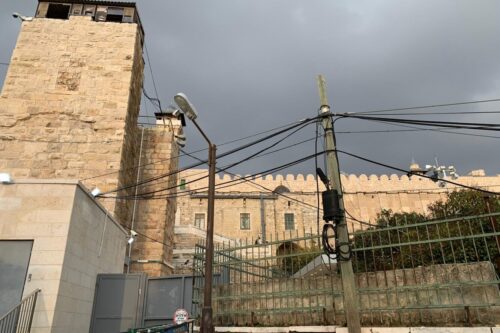BDS on its 20th anniversary: mobilising global justice for Palestine

Founded on July 9, 2005, the Palestinian-led Boycott, Divestment, and Sanctions (BDS) movement emerged from the UN World Conference Against Racism in Durban. Inspired by the successful global campaign against South African apartheid, it seeks to pressure Israel through non‑violent means until it ends the occupation of the 1967 territories, ensures equal rights for Arab‑Palestinian citizens, and honours the right of return for refugees.
The movement’s philosophy centres on principled solidarity. It rejects token gestures and pushes for the full implementation of international law, understanding that “picking crumbs from the table of someone who considers himself your master” won’t ensure justice.
This uncompromising stance is rooted in the belief that justice requires structural change, not charitable concessions.
BDS selects its targets based on their complicity with Israel’s policies – be it through arms sales, settlement support, or symbolic endorsement. It focuses on visible, impactful actors where global attention, public pressure, and corporate risk collide. This has led to the exclusion of countless companies from the patronage of ethically minded consumers and institutions alike.
BDS continues to campaign against major corporations, including Chevron, Intel, Disney, Dell and others, as well as cultural and academic institutions that collaborate with the occupation of Palestine. They’re also targeting global brands that, through franchisees or sponsorships, lend support to military and settler narratives. Learn more about the companies on the BDS list.
Recent BDS impact
BDS has recorded an increasingly visible string of achievements in 2024 – 2025, especially across universities and civic bodies.
This was in large part due to the huge upswell of awareness of the situation in Palestine and the extensive student protest movement in the US, brought about by Israel’s unrelenting attacks on Gaza’s civilian population since October 2023.
Some of the recent impacts include:
- Portland State University paused investments in and grants from Boeing over ties to Israeli weaponry
- Trinity College Dublin ended investments in Israeli companies listed by the UN for settlement involvement
- University of Helsinki suspended student exchange partnerships with Israeli institutions
- University of Copenhagen divested from Airbnb, Booking.com, and EDreams due to West Bank operations
- Brooklinen relocated all manufacturing out of Israel following sustained pressure.
Beyond institutions, resonant consumer pressure has hit major brands. McDonald’s recorded an estimated $7 billion revenue loss after promoting free meals to Israeli troops, especially in Muslim-majority markets. Starbucks also experienced sales drops and first-quarter forecasts were lowered due to consumer boycotts tied to perceptions of supporting violence in Gaza.
In addition to the economic and academic boycotts, the cultural boycott is a vital pillar of the BDS movement. Over the past three months, the momentum behind this aspect of the campaign has grown significantly. Irish rap group Kneecap and Scottish band La Fontaines both made headlines for pulling out of the SXSW festival in the United States due to its partnership with the Israeli government and weapons manufacturers supplying arms to Israel’s military. Their stance echoed that of dozens of other artists – including Squirrel Flower, Rachel Chinouriri, and Luna Li– who also cancelled their participation, citing the festival’s ties to Israeli apartheid and war profiteering.
Additionally, celebrities such as Ms Rachel, Macklemore and Susan Sarandon have used their platforms in recent months to publicly denounce the war on Gaza and express solidarity with Palestinian liberation, despite backlash. These cultural refusals strike a powerful chord, reminding audiences that art is never neutral, and that silence in the face of oppression is a political choice.
See the full list of the hundreds of artists using their platform to speak out for Palestine here.
BDS for Justice
BDS is deliberate in its strategic echo of anti‑apartheid boycotts. Like the sanctions that helped topple South African apartheid in the 1980s, it recognises that economic isolation can be a powerful instrument of justice. Just as campus protests in the 1980s galvanised divestment from corporations linked to apartheid, student and civic solidarity today echoes that moral imperative.
The result: a growing global consensus that upholds human rights over profit, and international law over impunity.
As the 9 July anniversary approaches, we must acknowledge the BDS movement’s profound achievements. Its insistence on justice and accountability continues to reshape corporate practices and public discourse.
To support a free, just Palestine, we must sustain pressure on all entities complicit in the occupation – until equal rights, international law, and dignity are realities, not negotiable ideals.
Learn more about and take part in the BDS Movement.
#PalestineFacts
Calculate your Zakat
Confused about how to calculate your Zakat? Try our simple-to-use calculator

![The current list of targets of the BDS Movement [Feb 2025]](https://interpal.charity/wp-content/uploads/2025/06/202502-BDS-List-1200x675.webp)
![A poster remembering Hind Rajab, seen in Washington DC on October 20, 2024 [Diane Krauthamer / Flickr]](https://interpal.charity/wp-content/uploads/2025/01/54086147753_5652c5385a_6k-1-500x333.jpg)
![A young man and his mother drive a donkey cart through the streets of Jabalia camp, Gaza on June 10, 2025 [Mohammed Ibrahim / Unsplash]](https://interpal.charity/wp-content/uploads/2025/09/mohammed-ibrahim-erVMX5cTmc-unsplash-1-500x333.jpg)
![Protestors in London holding the sign "I oppose Genocide. I support Palestine Action" during a mass civil disobedience sit-in on August 9, 2025. Support for Palestine Action was proscribed by the UK's Labour government in July 2025 [HudaAmmori / X]](https://interpal.charity/wp-content/uploads/2025/08/Gx6QGCEaEAAuMC7-e1754743048391-500x333.jpg)
